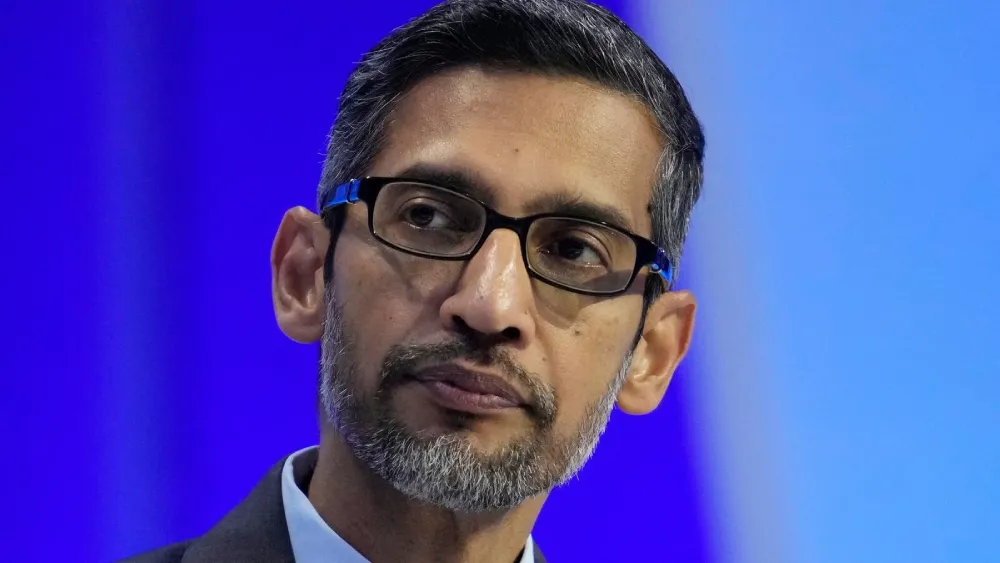Google’s Big Sleep AI: A Game-Changer in Cybersecurity
In a groundbreaking milestone, Google’s AI agent, Big Sleep, has redefined the future of cybersecurity by stopping a cyberattack before it could even begin. Announced by Google CEO Sundar Pichai on July 15, 2025, this achievement marks the first time an AI system has proactively thwarted a real-world cyber exploit, signaling a seismic shift from reactive to predictive defense strategies. This article dives into the significance of this breakthrough, its implications for global cybersecurity, and why it matters for businesses and individuals alike, with a special focus on its relevance in the Indian context.
What is Big Sleep?
Big Sleep is an AI-based cybersecurity agent, the development of which was conducted with the cooperation of Project Zero, the best team of Google, and Google DeepMind. In contrast to the existing methods of dealing with threats where the tools respond to the threat after it has been exploited, Big Sleep proactively crawls software in search of previously unknown vulnerabilities prior to the hackers being able to use it as a weapon against their victim. Its human-like advanced large language model (LLM) further examines enormously huge chunks of codes and detects possible bugs in an accurate and quick manner that was previously unattainable.
Big Sleep even hit the news in November 2024 when it identified its first vulnerability in real-life. It is also releasing several zero-day vulnerabilities since then such as a severe memory corruption problem in SQLite (CVE-2025-6965), which is a popular open-source database engine. This newest accomplishment, that of stopping a pending hack, has established Big Sleep not only as a pioneer in the field of AI-based cybersecurity but also as a company people can trust.
The Breakthrough: Foiling a Cyberattack Before It Started
July 15, 2025 Sundar Pichai used X to post the following news: New from our security teams: Our AI agent Big Sleep enabled us to identify and prevent an impending exploit. This, we think, is the first time such an AI agent has been used, but not, we hope the last, that it provides cybersecurity defenders with new capabilities to prevent threat before they are able to become widespread.”
The mentioned exploit utilized a severe bug in SQLite, of which only the attackers were aware of when the exploit was used. Big Sleep assisted by Google Threat Intelligence has forecasted the event of the impending attack and helped Google correct the defect before it could cause any harm. That active mitigation is the first in history because no other AI agent ever interrupted a live exploit in the wild.
The problem is that SQLite helps drive an infinite number of apps, be it smartphones, or enterprise systems being used in literally every corner of the world. The result of a successful exploit would have been the compromising of millions of devices leading to widespread disruption. In the process of neutralizing the threat, Big Sleep safeguarded not only the Google ecosystem but also made the internet of the general society more secure.

Why This Matters: A Paradigm Shift in Cybersecurity
The threat of cyberattacks is ever-increasing, and the current projection released by Cybersecurity Ventures is an eye-opener: by the year 2025, global losses are projected to exceed the mark of $10.5 trillion a year. In India, it is even more at stake. According to the Indian Computer Emergency Response Team (CERT-In), in the year 2024, the country had to deal with more than 1.6 million cyber incidents, and one type of attack, ransomware alone, cost Indian businesses 2,000 crore 2024. The legacy cybersecurity structure is based on the so-called patch-and-pray phenomenon, which means that updates to vulnerabilities are applied when those weaknesses are exploited, and that is a reactive measure, which is prone to leave systems vulnerable.
The success of Big Sleep sets this model upside down. It helps defenders to anticipate a step ahead of attackers by integrating the ability to predict based on AI with up-to-date intelligence of threats. Such transition of the defensive mechanism may decrease reactive defense time to a few seconds instead of hours, saving organizations billions of potential damages. To Indian companies, in particular, small and mid-sized enterprises (SMEs), where the level of cybersecurity infrastructure is relatively weak, these AI-based tools may become a lifesaver due to the growing advancement in attacks.
Local Context: Why India Needs AI-Driven Cybersecurity
This is good news since India is gaining momentum in the digital space, with more than 900 million people on the internet, and an active startup environment. Nevertheless, there is a surge in cyber risks that accompanies this growth. According to the Data Security Council of India (DSCI) report of 2024, 43 percent of Indian organizations suffered at least one cyberattack on them in the last year, with phishing and ransomware topping the list of threats. One of the sectors of the Indian economy, the financial one, is the weakest as 22 out of 100 worldwide cases of cyberattacks that touch on the financial sector hit Indian banks and financial institutions.
The capability of Big Sleep to lock open-source programs such as SQLite finds particular applicability in India where open source tools are being used extensively owing to their affordability. Through enhancing the safety of these platforms, the AI might defend the millions of Indian clients and companies, including fintech start-ups in Bengaluru and e-commerce websites in Mumbai. Additionally, with India making strides towards digital sovereignty as is evidenced in such government programmes as the Digital India, AI in the form of cybersecurity could lead to increased reliance on indigenous digital infrastructure.
Unique Insights: The Dual-Edged Sword of AI in Cybersecurity
The success of Big Sleep as acclaimed is in itself a success but it poses serious questions. Malicious actors are likely to weaponize the same AI features which are useful to defenders. Hmm, so can the AI agent be turned 180 degrees so that it may also serve an offensive purpose, as one X user observed. To snoop around looking at the loopholes that a malicious user can use?” To a certain extent, this worry is worth considering: once the AI-based tools fall into the hands of the wrong people, they can speed up the process of finding exploits and using them, introducing the AI-vs-AI race in cybersecurity.
The other factor is the ethical embodiment of AI as part of security. The false positives, in which valid operations were defined as a threat, may shut down crucial activities, particularly in certain areas such as healthcare and finance. Google has not stated how Big Sleep will contain such risks, but it will be central to earn trust by being transparent.
The Road Ahead: AI as the Future of Cybersecurity
A breakthrough in Big Sleep is only the start of it. Google intends to introduce the AI into its ecosystem and sell it to cloud customers, which may lead to democratizing the access of the latest cybersecurity technologies. In the case of India, it may represent accessible and scalable solutions to the startups and the SMEs resulting in the even playing field with the well-financed cybercriminals.
Internationally, the success of Big Sleep will act as a spur to other companies in the market that deem implementing AI-based security as life changing such as Microsoft and Amazon to speed up their ventures in the implementation of the technology. As cyberattacks increase both in magnitude and complexity, more cybersecurity arsenals are going to assume the use of such tools as Big Sleep. Nevertheless, there also exist obstacles such as the requirement of ethical models, strong training sets, and prevention of abuse.
Conclusion: A New Era of Digital Defense
Big Sleep by Google has marked a new dawn of cybersecurity technology where AI is no longer responding to threats but also preempts and prevents them before they do harm. To businesses, governments and individuals, the breakthrough signals a reprieve in yet another deadly online world. Considering that cyber insecurity is a burning issue in India, the capacities of Big Sleep might protect India in its digital innovations, ranging to the field of e-governance and even smart cities.
To be sure that this is only the first step in AI when it comes to cybersecurity, it is only apt to quote Sundar Pichai and call this a “definitely not the last” milestone in this particular area. The success of Big Sleep urges organizations across the globe to adopt predictive defense and make our future in the digital world safe, robust, and reliable.
Disclaimer
The information presented in this blog is derived from publicly available sources for general use, including any cited references. While we strive to mention credible sources whenever possible,Web Techneeq – Top Web Development Company in Mumbai does not guarantee the accuracy of the information provided in any way. This article is intended solely for general informational purposes. It should be understood that it does not constitute legal advice and does not aim to serve as such. If any individual(s) make decisions based on the information in this article without verifying the facts, we explicitly reject any liability that may arise as a result. We recommend that readers seek separate guidance regarding any specific information provided here.

